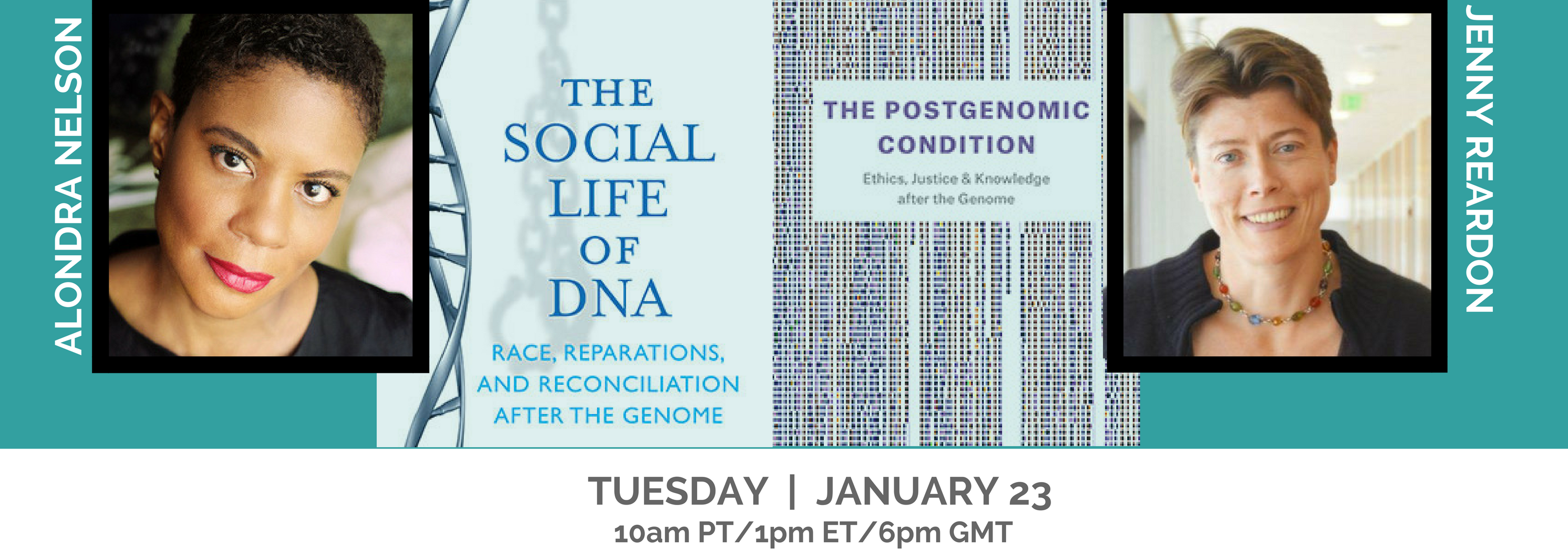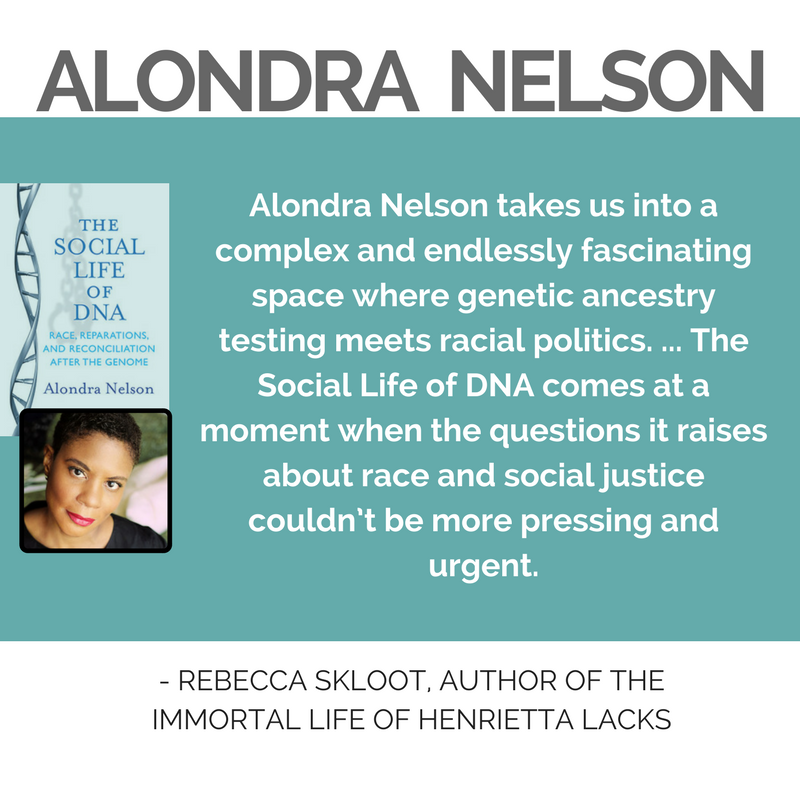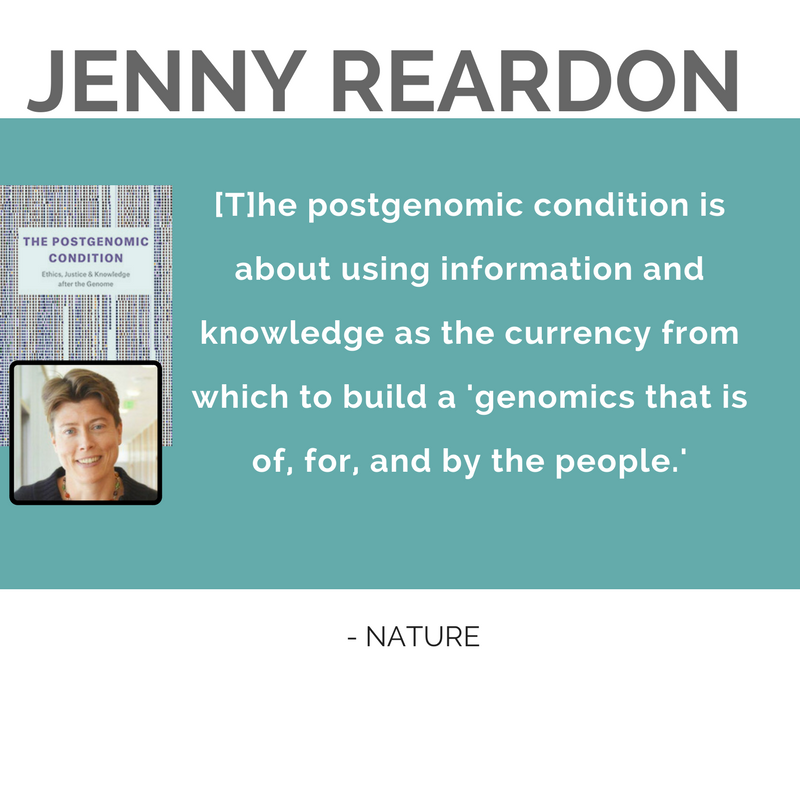Talking Biopolitics with Alondra Nelson and Jenny Reardon
Alondra Nelson and Jenny Reardon, both authors of recent books about genomics and social justice, engaged in conversation about their work. They explored how institutions respond to histories of racism in which genetics plays a role; the problems of knowledge that living in a genome-oriented world present; and how we can develop new understandings of racism, morality, and genetic justice.
This webinar was part of Talking Biopolitics 2018, a continuing series by the Center for Genetics and Society, where cutting-edge thinkers talk about the social meanings of human biotechnologies. We regularly updated our Facebook event page, and live-tweeted the conversation using #TalkingBiopolitics.
Live captioning and audio description was provided. A transcript and recording will be available in the coming weeks.
A video recording and written transcript are available.
About the Speakers:
For other Talking Biopolitics events, click here.






